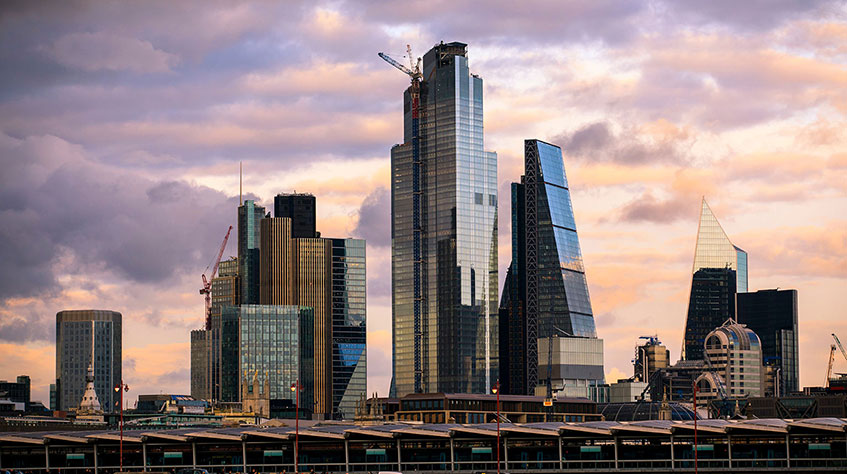COMMENT: After the global financial crisis in 2008, the real estate world held its breath as values plummeted by 44% over six months.
Then, in spring 2009, the chaos eased, and the world’s cleverest real estate investors returned in force to buy prime property at distressed prices, ensuring powerful rates of return for years to come.
While the likes of Blackstone, Norway’s sovereign wealth fund Norges, and a raft of Middle Eastern buyers fuelled by petro-dollars filled their boots then, the current dynamics of the UK’s investment market are more subtle.
In mid-2020, while stock markets plummeted, UK real estate values fell by around 7%, while some sectors saw a significant boost – namely specialist residential assets, warehouses and data centres.
Values have now stabilised, and the question front of mind for major real estate investors in London is whether they should follow the buccaneers of the late 2000s back into the market even as doubts continue over the future of the office.
Offices in focus
Some posit that offices are falling in favour. The argument goes that with a growing shift to meeting online, 20% of offices will be vacated.
But there is a strong counter-argument dominating discussion among investors, which is that the best, most sustainable office buildings will command a premium as companies in a war for talent invest in their workplaces and re-orientate their teams towards more collaboration and better spaces for learning and development.
This is borne out by Knight Frank’s new Active Capital research, which foresees an even stronger year ahead for global real estate investment in 2022 after a good recovery this year.
We are forecasting that investment volumes into Europe, the Middle East and Africa could increase by 50% in 2022; that the office sector is set for a bumper year, accounting for more than half of cross-border investment volumes in 2022, underpinned by demand from income-focused investors; and that the UK, US, Germany, France and the Netherlands will be the top destinations for cross-border real estate investment.
An autumn upturn
London is still not fully back on its feet. In August, according to the London Purchasing Managers Index, activity growth receded to a five-month low as economic recovery tapered. West End footfall is still a fifth below pre-Covid levels, says the Heart of London Business Alliance.
But a slew of more encouraging evidence is exciting global real estate investors, who make their money by examining future trends. West End footfall is 70% up on August 2020, with UK consumer confidence now above pre-pandemic levels. London luxury hotel revenue has grown for the fourth consecutive month. Mobility to City of London workplaces has risen by 7% in the past month. International traffic at Heathrow doubled to more than 2m people in July, and is set to rise further with the US opening again to European visitors.
Add the fact that Active Capital 2021 ranks London as one of the world’s top five green-rated cities, benefiting from well-developed public transport networks, urban green space and a high number of green-rated buildings, and you have a recipe for investment success.
Global institutional investors need to show that they are buying ESG-friendly real estate to reinforce their own credentials, but they also benefit from buying green-rated office buildings.
Our recent research found that prime central London office buildings with a BREEAM Excellent rating enjoy a 10.5% premium on sales price compared with equivalent unrated buildings, while those with a BREEAM Very Good rating enjoy a 10.1% premium.
Headline rents remain strong on the best office space and incentives to tenants are relatively static, which is all adding up to a healthy investment picture as we head into the autumn.
Transactions worth more than £600m completed in London in September, and with lockdown restrictions easing, more than £1.3bn of property is available on or off market in London right now, with more international visitors incentivising owners to sell.
The ‘Black Swan’ that people feared for the real estate market in spring 2020 has not appeared, and the return to the office, combined with improved leasing conditions, is underpinning a strong revival in the London investment market as well.
Stephen Clifton is head of commercial at Knight Frank











